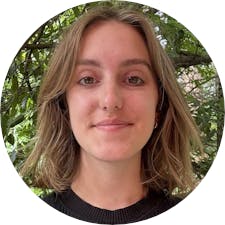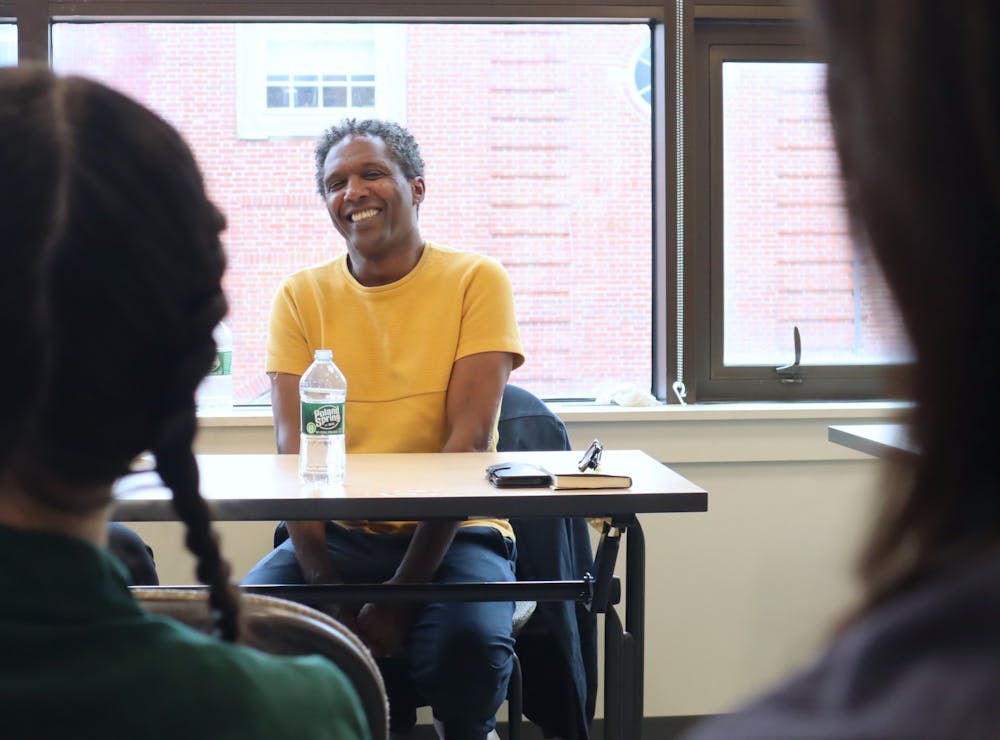The moment Lemn Sissay enters a room, audiences can tell he is there to perform.
He is open and smiling, cracking so many jokes between his poems and memoir readings that the event feels almost like stand-up comedy interspersed with memories of Sissay’s painful early life in the British child care system.
Sissay opened the ninth annual Alliance for the Study of Adoption and Culture Conference with a poetry reading on Thursday. Organized by Emily Hipchen, the director of the nonfiction writing program and a senior lecturer in English, the poetry reading was the first of three events featuring Sissay. On Friday, Sissay also delivered the conference’s keynote address. There, he read his memoir “My Name is Why,” recounting his experience being surrendered to the care of the government as an infant and living in foster and children’s homes during his childhood.
“If this is your first poetry reading, I’m sorry,” Sissay joked, stopping halfway through his first poem, which told the story of a man hanging onto a branch on the face of a cliff.
In an interview with The Herald, Sissay shared that he had known that he wanted to be a poet from age 12.
“The feeling of security is what I got when I wrote and I felt the world around me was incredibly insecure. And writing gave me a sense of purpose,” he said. “Poetry is around us all of the time, and it's very powerful.”
“I write because creativity is a celebration of what it is to be human,” he added. “I think when I write, I'm alive.”
For Sissay, it is okay for audience members to feel confused by his work. “It’s good not to understand something,” he said. “Let go of any idea that you’re in the wrong place.”
At the poetry reading, Sissay read from his collections “Morning Breaks in the Elevator” and “Let the Light Pour In,” the latter comprising the four-line poems he publishes every morning on X.
Sissay has been writing posts on X for 13 years, he said at the event. Every day, he faces “the idea that they might be crap and that someone could be laughing at how bad they are.”
“I don’t do it for likes, because if I did it for likes, I would have to write what I thought other people liked,” he added. “And I write what I like.”
Sissay not only writes what he likes — he also talks about exactly what he wants to. Before reading his poem “Invisible Kisses,” he jokes that he is going to sue every couple who has read his poem at their wedding.
“Did you pay me?” he asked, faking sincerity. “You stole from a poet.” He began his poem before stopping in the middle to clarify. “Can I just say, I’m not suing anybody?”
Throughout the reading, the room was electric with laughter. Sissay charmed with each piece he read, poking playfully at anyone who arrived late or left early.
After reading the first poem in “Let the Light Pour In,” Sissay told the audience that they would be singing the poem.
“There’s no rules to how a poetry reading should be,” he said. “So we’re gonna sing it.” The audience agreed, repeating the melody back to him. He continued his reading, alternating between the darker and more lighthearted of his four-line poems before transitioning to a Q&A.
His keynote performance, while still decorated with jokes, was more serious. Reading from his memoir, Sissay recounted his memories of being stolen from his mother, having his name changed and growing up in Britain’s child care system.
Before he began reading, Sissay told the audience that his memoir “acts as a witness statement to what happened to me because there were no witnesses.”
“Family is a set of disputed memories between one group of people over a lifetime,” he said. “I didn’t have anybody to dispute the memory of me.”
During the Q&A, Sissay discussed forgiveness and how he was able to forgive his foster parents for putting him back into the child care system.
“You can't forgive somebody just for your own benefit,” he said. “You have to forgive them because you believe that they are deserving of forgiveness.”
For Sissay, forgiving his parents lifted a weight off of his shoulders. “Any darkness in me was my responsibility. Couldn't be blamed on anything,” he said. “It was (up) to me to work through it.”
During the reading, Sissay reassured the audience that he “was okay.” And it seemed he truly was: smiling and joking throughout his reading, Sissay seemed to radiate joy.
In an interview with The Herald, Sissay shared the secret to his happiness.
“I think that there's something bigger in the world. I don't know what it is. For some people it's God, for some people, it's creativity,” he began. “But I think that's really important to me, to know that I'm not the most important thing in the world — that there’s something much bigger than me. I think that's the main thing that helps my wellbeing and keeps me happy.”
He also highlighted the importance of finding joy in what you do. “Find a career that you love,” he said. “And then stay there. Do things that make you happy.”

Cate Latimer is a university news editor covering faculty, University Hall and higher education. She is from Portland, OR, and studies English and Urban Studies. In her free time, you can find her playing ultimate frisbee or rewatching episodes of Parks and Rec.





